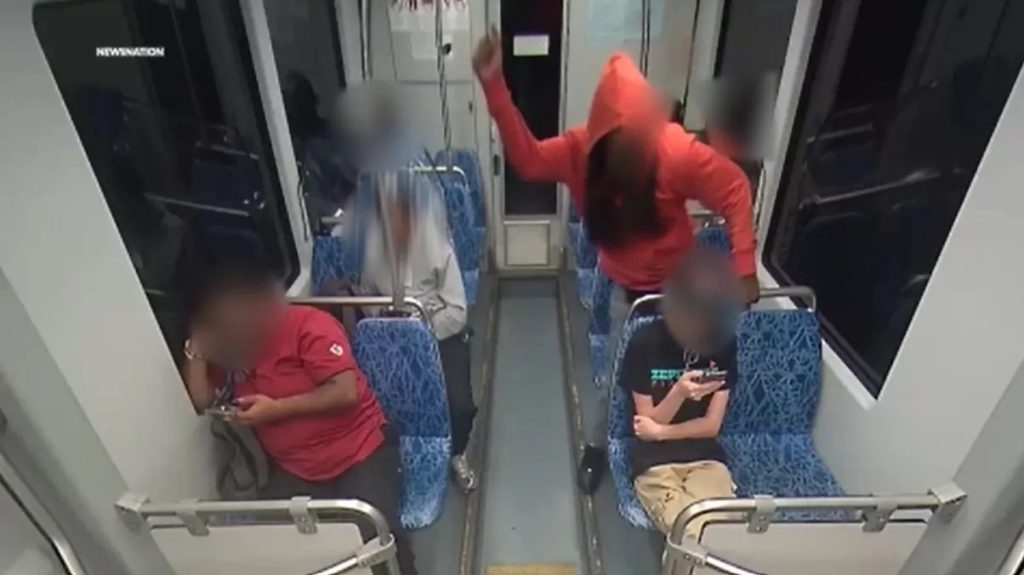Tragedy on Charlotte Metro Prompts Federal Response and Safety Concerns
In a heartbreaking incident that has captured national attention, the murder of Ukrainian refugee Iryna Zarutska on the Charlotte Metro last month has triggered a swift federal response. FBI Director Kash Patel and Transportation Secretary Sean Duffy have both announced that the case is under federal investigation, with implications that extend far beyond North Carolina. This tragedy has become a focal point for broader discussions about public safety, immigration, and accountability in America’s transit systems. The case is particularly poignant as Zarutska had fled Ukraine seeking safety in the United States, only to become a victim of violence in a place where she should have been protected.
The federal response has been notably direct, with FBI Director Patel revealing that the bureau has been investigating the Charlotte train tragedy “from day one.” His cryptic message to “stay tuned” on social media suggests that significant developments may soon come to light, potentially revealing more than what local authorities have disclosed. Meanwhile, Transportation Secretary Duffy announced a separate investigation into how the Charlotte transit system failed to protect Zarutska, directly connecting this inquiry to President Trump’s “zero tolerance” stance on crime. The administration’s position is clear and uncompromising: “If mayors can’t keep their trains and buses safe, they don’t deserve the taxpayers’ money,” Duffy stated, adding that the Department of Transportation will be examining other “crime-ridden cities” as well, signaling a nationwide approach to transit safety.
President Trump himself has weighed in on the tragedy, sharing his reaction after viewing the crime footage. In a statement released through the White House, he described Zarutska as a “beautiful, young Ukrainian refugee, who came to America to escape the vicious War in Ukraine,” and who was “brutally ambushed by a mentally deranged lunatic” while “innocently riding the Metro.” The President’s statement highlighted that the alleged perpetrator was a “well known career criminal” who had been “previously arrested and released on CASHLESS BAIL in January, a total of 14 TIMES.” This framing connects the tragedy to broader criticisms of criminal justice reforms and bail policies that some argue allow dangerous individuals to remain on the streets. “What the hell was he doing riding the train, and walking the streets?” the President questioned, adding emphatically, “Criminals like this need to be LOCKED UP.”
The incident has evolved from a local tragedy to what Duffy and Patel are framing as a national test of accountability. The Trump administration appears to be considering using federal funding as leverage to compel local governments to prioritize public safety. “Our position is, if you don’t clean up your act, we’re not going to invest in you… If you don’t, we’re going to pull your money and we’ll put it somewhere else,” Duffy explained during an appearance on Fox News’s ‘The Ingraham Angle.’ This approach represents a significant shift in how federal transportation funding might be allocated, potentially tying it directly to crime rates and safety measures on public transit systems. The message is clear: cities that fail to protect their residents and visitors may face financial consequences from the federal government.
Beyond the policy implications, Duffy emphasized the human cost of unsafe public transportation. He quoted a Charlotte resident who expressed a common dilemma: “I don’t feel safe on public transportation. But, I have to work.” This testimony highlights how public safety issues disproportionately affect working-class Americans who rely on public transit to reach their jobs and carry out daily activities. “No American should be put in that position,” Duffy asserted, “and the Trump administration will do everything in its power to change that.” This framing positions the administration as a defender of ordinary Americans who depend on safe public services, particularly those who lack other transportation options.
While local police continue to lead the homicide investigation with federal assistance, the details of the FBI’s probe have not been fully disclosed, nor has the Department of Transportation specified whether Charlotte’s transit funding could be formally affected. However, the Trump administration’s allies have made it clear that they intend to keep this case in the national spotlight as part of a broader agenda focused on crime reduction and public safety. The tragic death of Iryna Zarutska – a woman who survived war only to fall victim to violence in what should have been a safe haven – has become symbolic of larger issues facing American cities and transit systems. As federal investigations proceed and policy discussions continue, her story serves as a painful reminder of the human consequences when public safety systems fail those they are meant to protect.







